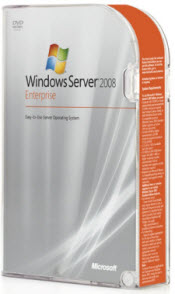The myth of Windows "Workstation" 2008

For a few months now I've been hearing stories from people who claim to be getting a much better Windows experience by ditching Windows Vista and adopting Windows Server 2008 as a desktop operating system. But are there any benefits to throwing your copy of Vista into the bin and running Windows Server 2008?

The first gotcha is price. While Windows Vista isn't cheap by any stretch of the imagination, Windows Server 2008 commands an enterprise-level price tag. Just compare the list prices:
- Windows Vista Ultimate (system builder): $239.99
- Windows Server 2008 Standard (system builder): $999.99
Do you think it's a drawback that Windows Server 2008 costs as much (if not more) than a really nice desktop PC? I do.
OK, but let's put the price on one side (after all, what does a thousand bucks buy you these days, a few tanks of gas ...) and assume that you have a generous employer, money to burn, a fairy godmother, access to MSDN/TechNet or just want to experiment with a trial version (which you could legally run for 240 days), does the reality of Windows "Workstation" 2008 live up to the hype/myth?
A note about costs: Consider that money that you spend of Windows Server 2008 as a first installment of your membership dues to the Windows "Workstation" 2008 club. Get used to consumer anti-virus and backup tools not working on Windows Server 2008 and having to pay over the odds for server versions of those products. Windows Server ownership doesn't come cheap - I know this from personal experience.
The short answer is not really. Since I know you're not going to be happy with the short answer, here's the longer version of the answer.
The problem with using Windows Server 2008 as a desktop OS is that setting it up isn't a matter of installing the OS, getting the drivers loaded, doing a few tweaks and then you're done. No, the problem I found with the Windows "Workstation" 2008 model is that you are forever fighting the fact that you are running a server OS that's just not designed to be a desktop OS, and which other software you try to run looks at as being weird at best, or just not supported at worst. Sure, you can, with time and effort, make Windows Server 2008 look and feel a lot like Windows Vista (loads of information on how to do this here), and most problems that you encounter are fixable given time and effort, but there are no end to these issues and after you fix one issue you're onto the next.
So, what are the upsides? Well, here's the real rub. After putting in all that time and effort (and expense, if you bought Windows Server 2008) I don't see you ending up with an OS that's any better (or worse) than Windows Vista. Why? Because Windows Vista and Windows Server 2008 share the same kernel and the real difference between the two OSes is what's running (or not running) be default, a few artificially set limits (which you can tweak if you know what you are looking for), and the fact that you can't easily install all the same junk that you normally install on Windows Vista onto Windows Server 2008.
So why are some people raving about Windows Sever 2008? I think it comes down to two reasons:
- First is something I've already touched on. It's the fact that it's not easy to install all the junk that you'd install onto Windows Vista onto Windows Server. Less junk means better performance and far greater stability.
- Secondly, while Windows Server 2008 and Windows Vista share the same kernel, the RTM release of Windows Server 2008 was far more robust and reliable that the RTM release of Vista? Why? Because it incorporated over a year of fixes, including SP1. That makes a huge difference.
The bottom line ...
If you want a better Windows experience then in my book you are better off forgetting about Windows "Workstation" 2008 and instead switching to 64-bit Vista and going up to 8GB of RAM.
Thoughts?